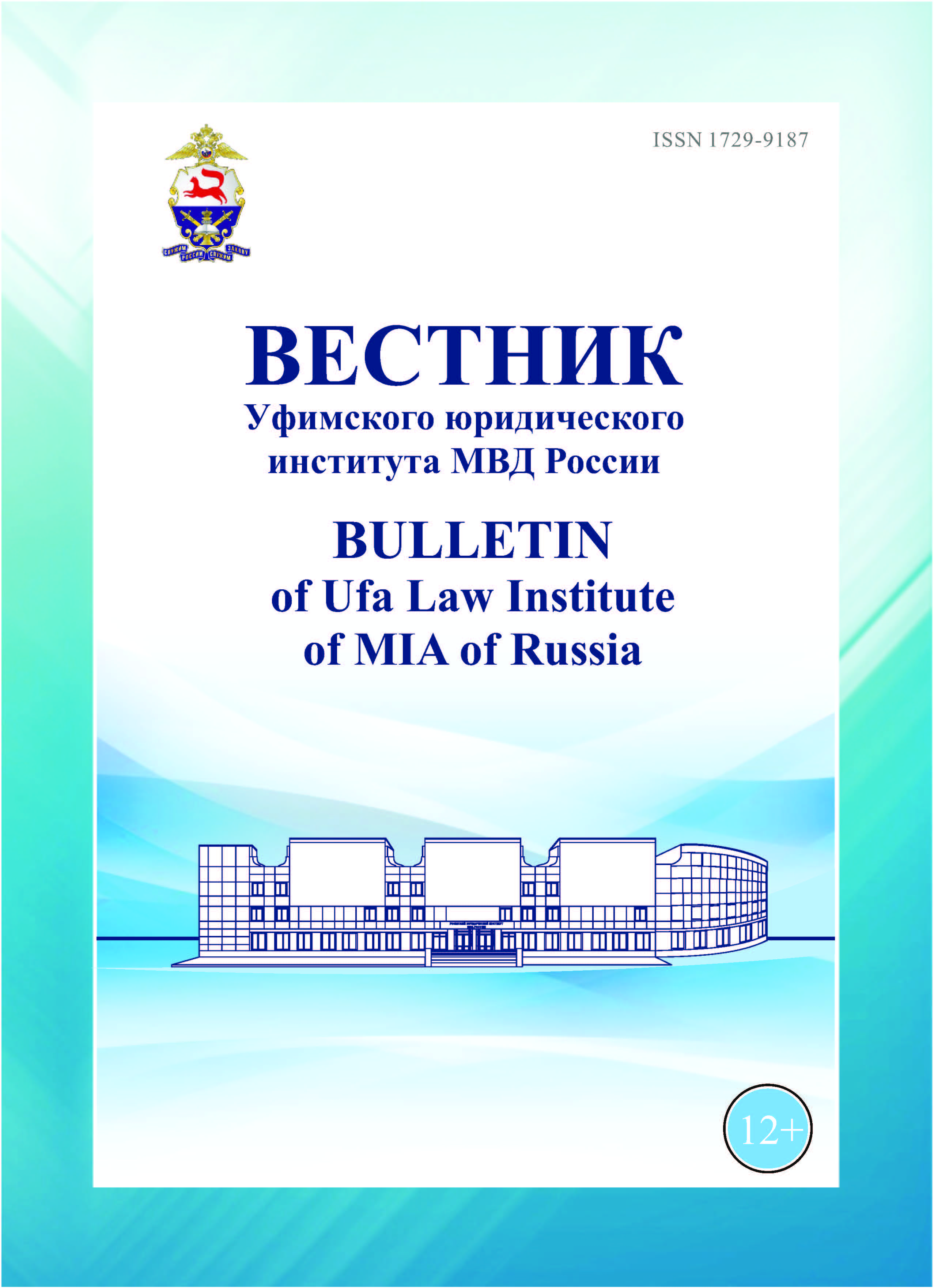Russian Federation
UDC 34
The article discusses the current possibilities of using artificial intelligence in the field of constitutional, civil, arbitration, administrative, and criminal proceedings. The authors concluded that there is a need for large-scale implementation, use and development of services, information retrieval, reference systems, as well as databases and algorithms that help optimize the time and labor resources of participants in procedural legal relations. The article identifies and identifies objective obstacles that currently make it impossible to fully apply artificial intelligence in the field of justice. The authors reviewed the global experience in the use of artificial intelligence, as well as made proposals for the introduction of human-controlled artificial intelligence in the field of justice in the Russian Federation, which can significantly improve the effectiveness of law enforcement procedures and provide a higher level of legal protection for both individuals and legal entities.
justice, artificial intelligence, court, legislation, judicial proceedings
1. Information Technologies in Legal Activity. P. U. Kuznetsov et al.; edited by P. U. Kuznetsov. 4th ed., revised and enlarged. Moscow: Yurait, 2024. 436 p. (In Russ.)
2. Kiseleva K. A. Artificial Intelligence Guarding Law and Order // Bulletin of the Ufa Law Institute of the Ministry of Internal Affairs of Russia. 2024. No. 4 (106). P. 63–71. (In Russ.)
3. Shabanov P. N. Inner Conviction of a Judge // Bulletin of Voronezh State University. Series: Law. 2010. No. 1. P. 129–138. (In Russ.)
4. Malysheva D. S., Kasimov A. V. Technical and Philosophical Foundations for Creating a StrongArtificial Intelligence (Part I) // Bulletin of the Perm National Research Polytechnic University. Culture. History. Philosophy. Law. 2016. No. 3. P. 75–85. (In Russ.)
5. Momotov V. V. Artificial Intelligence in Legal Proceedings: Status, Prospects of Use // Bulletin of the O. E. Kutafin Moscow State Law University (MSAL). 2021. No. 5. P. 188–191. (In Russ.)
6. Adeshchenko K. R. Artificial Intelligence Capabilities in Civil Procedure // Economics. Computer Science. 2023. No. 50 (3). P. 704–711. (In Russ.)
7. Yatsutsenko V. V. Problems and Prospects of Implementing Digital Technologies in the Activities of the Prosecutor’s Office // Actual Problems of Russian Law. 2021. Vol. 16. No. 11 (132). P. 187–193. (In Russ.)
8. Laptev V. A. The concept of artificial intelligence and legal liability for its work // Law. Journal of the Higher School of Economics. 2019. No. 2. P. 79–102. (In Russ.)
9. Rakhmanina T. N. Organization and methods of preparing bills // Lawmaking in the Russian Federation / edited by A. S. Pigolkin. Moscow, 2000. 608 p. (In Russ.)
10. Borisova L. V. On the main directions of the formation and development of electronic justice in modern Russia // Law and digital economy. 2020. No. 2. P. 32–35. (In Russ.)
11. Galkina N. M., Kuznetsova D. V., Vorobyov M. A. Foreign experience in using artificial intelligence in the judicial system // Bulletin of the Voronezh State University. Series: Law. 2023. No. 3 (54). P. 35–44. (In Russ.)
12. Rusakova E. P. Integration of Modern Digital Technologies into Legal Proceedings in the People’s Republic of China and Singapore // State and Law. 2020. No. 9. P. 102–109. (In Russ.)
13. Zaloilo M. V. Artificial Intelligence in Law: A Scientific and Practical Handbook / edited by Doctor of Law, Professor D. A. Pashentsev. Moscow: Infotropic Media, 2021. 132 p. (In Russ.)
14. Bulgakova E. V., Denisov I. S., Bulgakov V. G. CyberJustice // Court Administrator. 2018. No. 4. P. 13–16.
15. Izvarina A. F. The judicial system of Russia: conceptual foundations of organization, development andimprovement. Moscow: Prospect, 2023. 304 p. (In Russ.)









